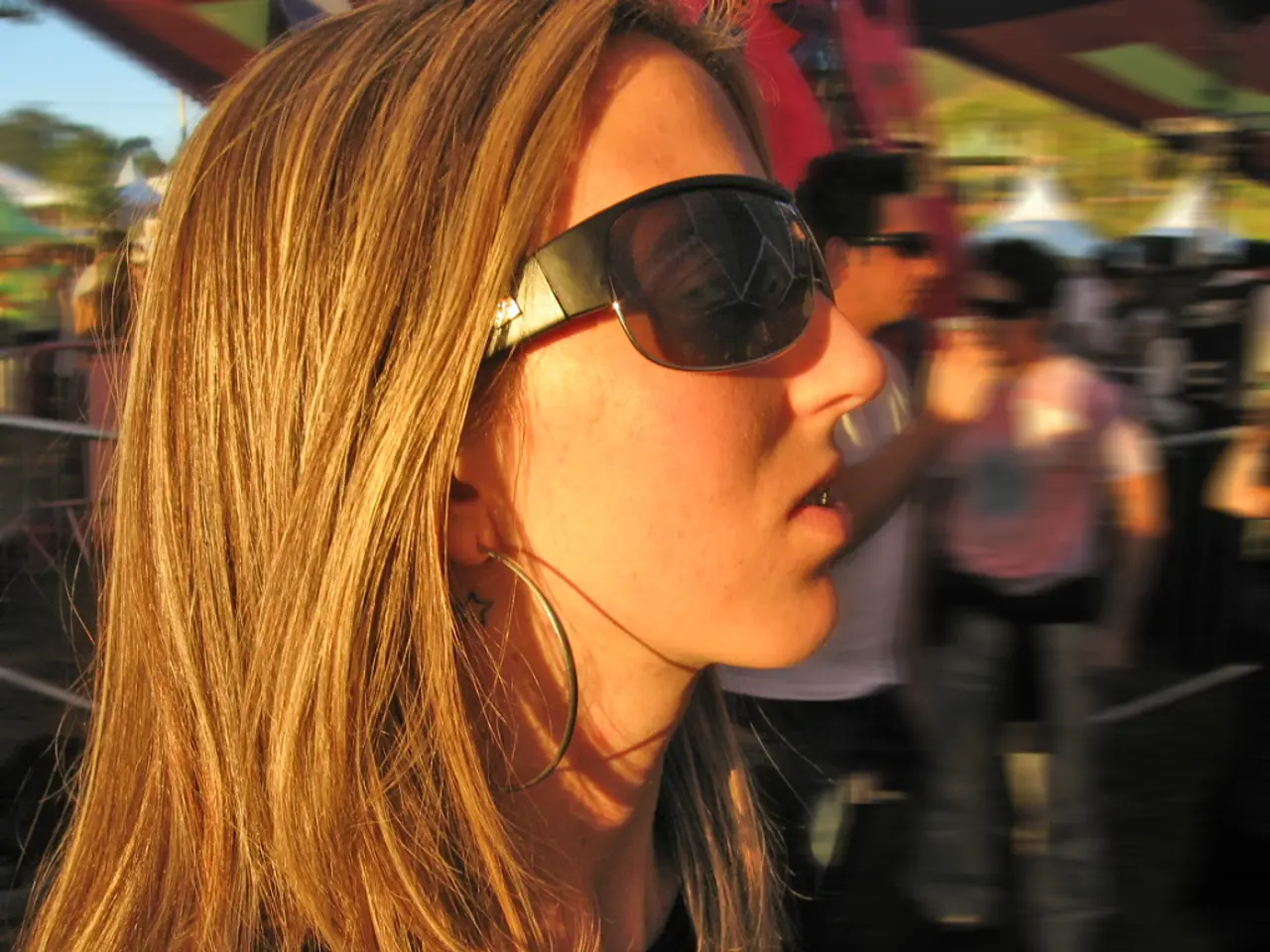Nighttime Eye Itch: Home Solutions, Causes, and Preventing Triggers
Itchy eyes at night can be a nuisance for many people, causing discomfort and disrupting sleep. This article aims to provide insights into the common causes and effective treatments for this issue.
The most common causes of itchy eyes at night are allergies and environmental factors, such as pet dander, pollen, or indoor plants, which can trigger allergic conjunctivitis. Even if there is no direct contact with pets, their dander can linger on clothing or furniture, causing symptoms. Environmental allergens like new vegetation or certain houseplants can also cause irritation.
Another common cause is dry eyes during sleep. Incomplete eyelid closure, also known as nocturnal lagophthalmos, can leave the eyes exposed to air, leading to dryness and itching. Low tear production during sleep, dry bedroom air, and certain medications can exacerbate this issue.
Irritants from household items, such as laundry detergents, chemicals like bleach or ethanol, and lawn care chemicals, can also contribute to itchy eyes. Skin conditions or infections, such as allergic rashes from contact with irritants like poison ivy sap or infections affecting the eyelids, may also cause nighttime irritation.
Treatments for itchy eyes at night depend on the cause but generally include avoiding allergens, using antihistamine or anti-allergy eye drops, and improving eye lubrication. For dry eyes, applying lubricating eye drops or ointments before bedtime, using a humidifier, and adjusting the sleep environment to avoid direct air from fans or heaters can be beneficial.
If rash or infection is present, it's essential to consult a healthcare provider for possible steroid creams or antibiotics. Autoimmune-related eye symptoms require specialist management.
Preventing eyestrain during the day can help reduce the likelihood of itchy eyes at night. This can be achieved by taking breaks when driving, wearing polarized sunglasses, reading in well-lit areas, taking breaks when working at a computer or staring at other screens for long periods, using artificial tears throughout the day, wearing contacts or glasses, and reducing mold in the home through cleaning and using a dehumidifier.
The 20-20-20 rule, which involves looking away from a screen every 20 minutes and focusing on an object 20 feet away for 20 seconds, can help lessen eyestrain. Warm compresses may help relieve itching due to allergies, while cold compresses may help ease itching if the eyes feel warm and swollen.
People who wear makeup should consider removing all their makeup before cleaning their eyes. Avoiding sharing products that come in contact with the eyes of other people can help prevent some diseases, such as pink eye.
By identifying potential triggers and taking appropriate measures, such as avoiding allergens, using home remedies, and seeking medical treatment when necessary, itchy eyes at night can be effectively managed. If symptoms are severe or persistent, professional evaluation is recommended.
- Allergies and environmental factors like pet dander, pollen, or indoor plants can cause itchy eyes at night, even in non-pet households where dander remains on clothing or furniture.
- Dry eyes during sleep, due to incomplete eyelid closure or low tear production, can leave the eyes exposed and trigger itchiness and discomfort.
- Household items such as laundry detergents, cleaning chemicals, and lawn care chemicals can also contribute to nighttime itchy eyes.
- Skin conditions or infections, including allergy rashes from contact with irritants like poison ivy sap or eyelid infections, can cause nighttime eye irritation.
- Treatments for itchy eyes at night often involve avoiding allergens, using antihistamine or anti-allergy eye drops, and improving eye lubrication.
- For dry eyes, lubricating eye drops or ointments before bedtime, using a humidifier, and adjusting the sleep environment can help.
- If a rash or infection is present, consulting a healthcare provider for possible steroid creams or antibiotics is crucial.
- Preventing eyestrain during the day can help reduce nighttime itchy eyes by taking breaks when driving, wearing polarized sunglasses, reading in well-lit areas, and following the 20-20-20 rule.
- Warm compresses may help relieve itching due to allergies, while cold compresses can ease itching if the eyes feel warm and swollen.
- People who wear makeup should remove all makeup before cleaning their eyes and avoid sharing products that come in contact with others' eyes to prevent diseases like pink eye.
- By identifying potential triggers and taking appropriate measures, nighttime itchy eyes can be effectively managed, with professional evaluation recommended for severe or persistent symptoms.
- Health and wellness, including eye health, mental health, and skin conditions, play significant roles in managing itchy eyes at night.
- Science and medical research continue to provide predictive insights into the causes and treatments for itchy eyes at night and other related health issues.








